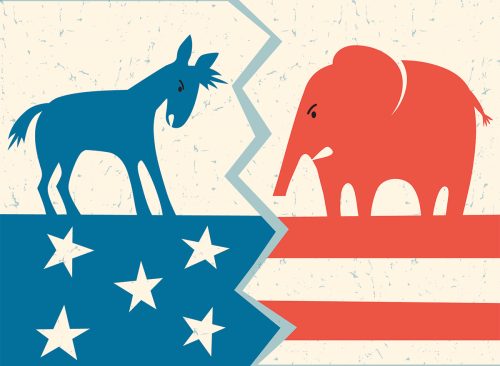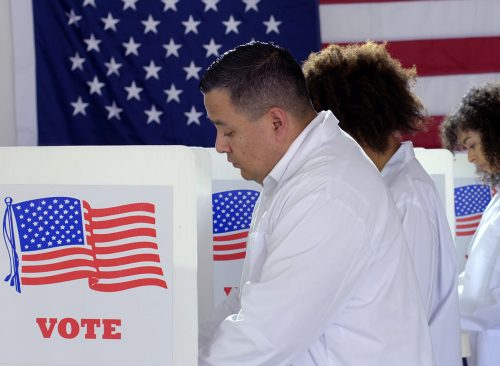5 Political Stereotypes That Are Actually False, According to Data
Conventional wisdom has taken a pretty big hit.

Conventional wisdom has taken a pretty big hit since 2016, when Donald Trump was elected president against the prognostication of polls and upended the idea of how things are usually done. But there are still certain assumptions—even stereotypes—that Americans tend to cling to about their political allies and opponents. But a new analysis by the Washington Post shows that some of those beliefs aren’t true. Read on to find out what they are.

It’s widely assumed that the Democratic Party skews younger than the Republican Party. But the data doesn’t back that up—older people comprise the majority of both parties, the Post reports. In 2022, 6 in 10 Democrats and 7 in 10 Republicans were 50 or older.

It’s believed that the Democratic Party skews more urban while the Republican Party is more rural. In reality, most members of both parties live in the suburbs. According to a Pew Research poll, 57 percent of Democrats and 53 percent of Republicans are suburban dwellers.

Although Democrats win 90% support of atheists and Republicans have 80% evangelical support, “that doesn’t mean one party believes in God and the other doesn’t,” the Post reports. “Most Democrats are Christians, and a solid chunk of Republicans claim no religious affiliation.” An increasing number of Republicans say they seldom or never attend religious services.

In 2022, only 52 percent of White college graduates voted for Democrats, and 47 percent voted for Republicans. “The result: Both parties relied on White college graduates for roughly a third of their votes,” the Post reports.

According to Pew Research, only 7% of the Republican Party identifies as Hispanic. “Republicans could very well win in 2024 by building on recent gains with the White working-class and Asian American voters, regaining recently lost college-educated suburbanites or finally making inroads with Black voters,” the Post says.














